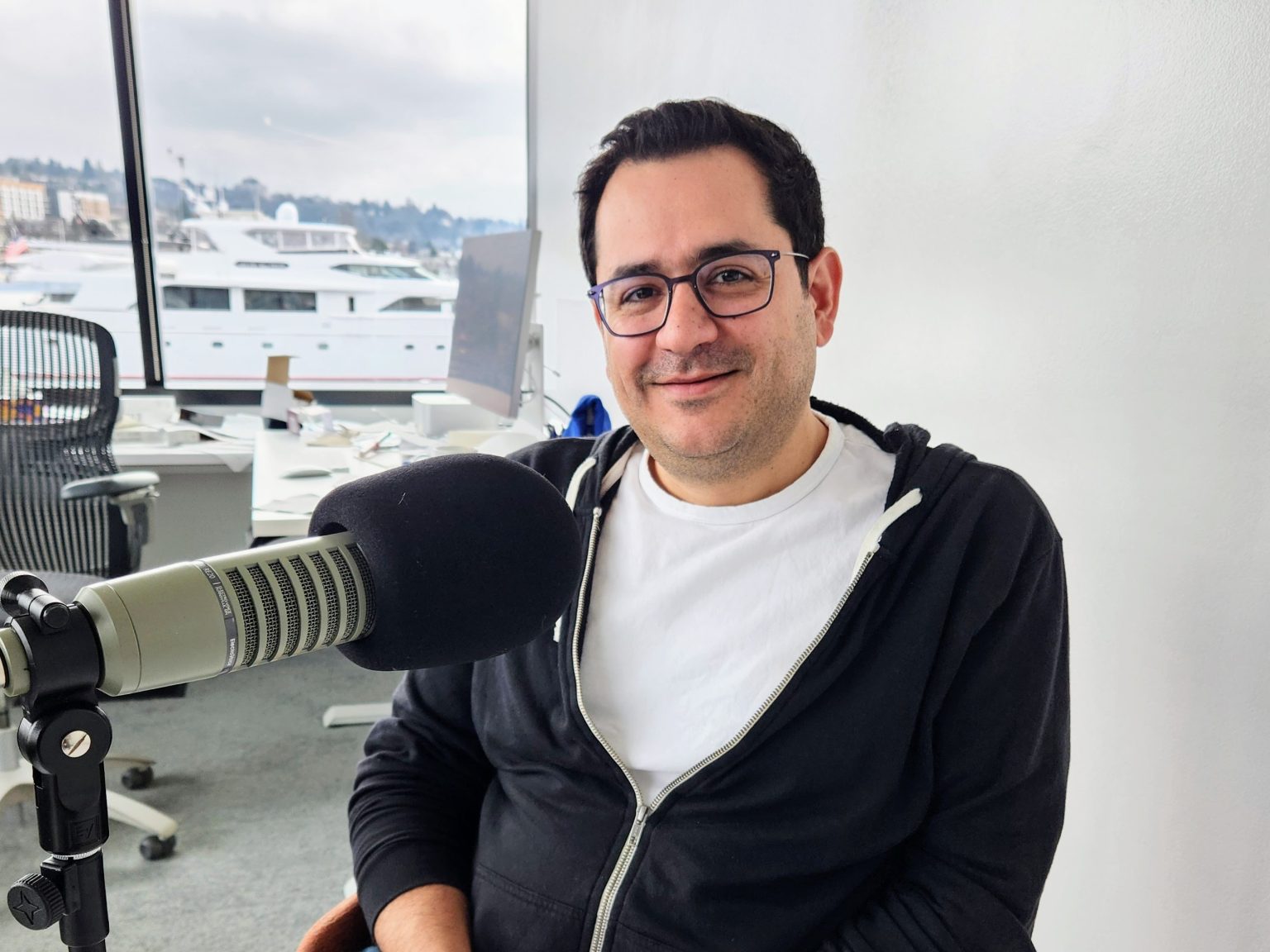Summarize this content to 2000 words in 6 paragraphs
Ali Farhadi, CEO of the Allen Institute for AI, recording an episode of the GeekWire Podcast at the non-profit institute’s Seattle headquarters on Friday, Feb. 14, 2025. (GeekWire Photo / Todd Bishop)
It has been a wild few weeks and an eventful few months in AI: DeepSeek, OpenAI, Stargate, Microsoft, Meta, Amazon, Salesforce, Google, Elon Musk, and much more.
With the DeepSeek advances in particular, there’s now a much greater focus on what it takes to train AI models, and the importance of open-source AI.
This week on the GeekWire Podcast, we talk with Ali Farhadi, CEO of the Allen Institute for AI (Ai2), the Seattle-based nonprofit that has been innovating in open-source AI since long before it was popular.
“We’re celebrating this moment as a proof point that open source will win,” Farhadi said of DeepSeek’s breakthroughs, citing the importance of the open approach in allowing researchers to build on each other’s progress.
Elements of DeepSeek’s approach followed in the footsteps of Ai2’s innovations — including reinforcement learning with verifiable results (RLVR) from Ai2’s Tulu 3. Similarly, Ai2 is now learning from DeepSeek’s open-source project.
“If the U.S. wants to maintain its edge … we have only one way, and that is to promote open approaches, promote open-source solutions,” Farhadi added. “Because no matter how many dollars you’re investing in an ecosystem, without communal, global efforts, you’re not going to be as fast.”
Ai2 had some news of its own this week: releasing its first on-device AI app leveraging a version of its open-source OLMoE model that can run offline on Apple iOS devices, promising new levels of security and privacy.
After developing more than 100 different variations of its AI models over the past year, Farhadi explained, the nonprofit institute is expanding its focus this year to increasingly apply those models to real-world, high-impact problems — starting with Ai2’s role in the Cancer AI Alliance led by Seattle’s Fred Hutch Cancer Center.
A computer vision specialist, Farhadi founded and led Ai2 spinout Xnor.ai as CEO, and sold the AI startup to Apple in 2020 in an estimated $200 million deal that represents one of the institute’s biggest commercial successes to date.
After leading machine learning efforts at Apple, Farhadi returned to Ai2 as its CEO in July 2023. He is also a professor at the University of Washington’s Allen School of Computer Science & Engineering. He cites the collaboration between major companies and institutions as one reason the region is well-positioned in AI.
Related Coverage and Links:
Listen above, and subscribe in Apple Podcasts, Spotify, or wherever you listen.












